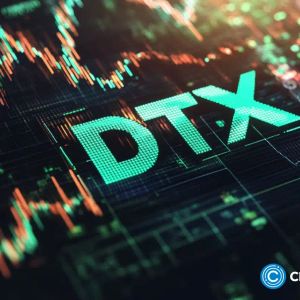Forex vs Stock Trading: A Detailed Comparison for Traders Forex and stock trading are two of the most popular financial markets, attracting millions of traders worldwide. While both offer opportunities for profit, they differ significantly in terms of market structure, trading strategies, and risk factors. Understanding these differences is essential for choosing the market that aligns with your trading goals and style. In this guide, we’ll break down the key aspects of Forex vs stock trading to help you make an informed decision. What is Forex Trading? Forex trading, also known as foreign exchange trading, involves buying and selling currency pairs in a decentralized global market. It is the largest financial market in the world, with a daily trading volume exceeding $6.6 trillion. Key Features of Forex Trading Currency Pairs : Traders speculate on the value of one currency relative to another (e.g., EUR/USD). 24/5 Market : Forex operates 24 hours a day, five days a week, across different time zones. High Liquidity : The Forex market offers unparalleled liquidity, making it easy to enter and exit positions. Leverage : Brokers provide leverage, allowing traders to control larger positions with smaller capital. What is Stock Trading? Stock trading involves buying and selling shares of publicly listed companies. Stocks represent ownership in a company, and their value fluctuates based on corporate performance, market sentiment, and economic conditions. Key Features of Stock Trading Ownership : Stockholders own a portion of the company and may receive dividends. Exchange-Based : Stocks are traded on centralized exchanges like the NYSE or NASDAQ. Market Hours : Trading is limited to specific hours, typically 9:30 AM to 4:00 PM (ET). Variety of Sectors : Stocks offer exposure to various industries, from tech to healthcare. Forex vs Stock Trading: Key Differences Aspect Forex Trading Stock Trading Market Size $6.6 trillion daily $200 billion daily Trading Hours 24/5 (Global) Limited (Exchange-specific) Instruments Currency pairs (Major, Minor, Exotic) Individual company shares Volatility High (Impacted by global events) Moderate (Tied to company performance) Liquidity Extremely high Lower compared to Forex Leverage Up to 500:1 (varies by broker and region) Typically lower, around 2:1 to 5:1 Market Influences Macroeconomic factors, geopolitical news Company earnings, industry trends Advantages of Forex Trading Global Market : Trade currencies from anywhere, anytime. High Liquidity : Easy to execute trades, even with large positions. Low Costs : Forex trading often has lower transaction fees and tighter spreads. Leverage Options : Amplify your positions with high leverage ratios. Who is Forex Trading Best For? Forex trading is ideal for: Traders seeking flexibility in trading hours. Those who prefer technical analysis over fundamental analysis. Individuals comfortable with high leverage and fast-paced markets. Advantages of Stock Trading Ownership : Stocks provide equity ownership and potential dividends. Diversification : Access to various sectors and industries. Transparency : Detailed information about companies is readily available. Long-Term Growth : Stocks can appreciate significantly over time, offering wealth-building potential. Who is Stock Trading Best For? Stock trading is suitable for: Investors interested in long-term wealth creation. Those who enjoy researching companies and industries. Individuals looking for a less leveraged and slower-paced market. Forex Trading vs Stock Trading: Risk Factors Risk Forex Trading Stock Trading Leverage Risk High leverage can amplify losses Lower leverage, hence lower risk Volatility Highly volatile due to global events Company-specific volatility Knowledge Barrier Requires understanding of global economics Requires understanding of company fundamentals Both markets carry risks, and traders should use risk management strategies like stop-loss orders, diversification, and position sizing to protect their capital. Forex and Stock Trading Together: A Balanced Approach Many traders choose to diversify their portfolio by participating in both Forex and stock markets. This approach allows them to benefit from: Forex’s liquidity and leverage for short-term trades. Stocks’ growth potential and stability for long-term investments. Conclusion: Forex vs Stock Trading—Which is Right for You? The choice between Forex and stock trading depends on your trading style, risk tolerance, and financial goals. Choose Forex Trading if you value flexibility, high liquidity, and leverage-driven opportunities. Opt for Stock Trading if you prefer stability, long-term growth, and equity ownership. Both markets offer unique opportunities and challenges. The key is to understand their dynamics, stay informed, and trade with a well-thought-out strategy. To learn more about trading strategies and market insights, explore our articles on the latest trends in Forex and stocks, helping you make informed decisions in these dynamic markets.




















